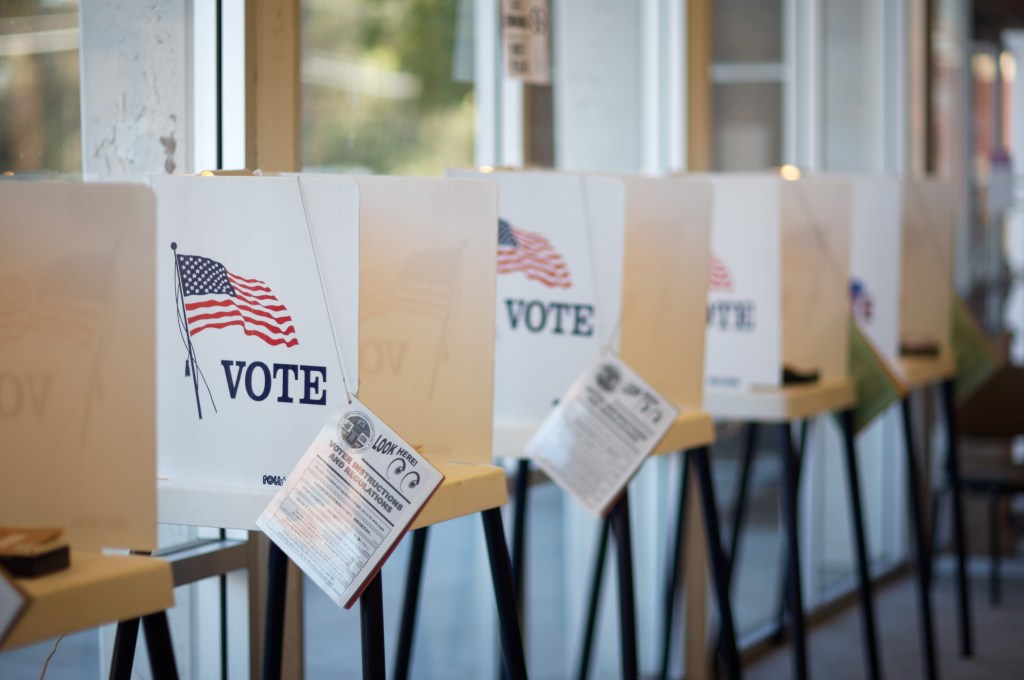Impeachment, control of Congress, referendum on Trump are in the balance in midterm elections

The midterm elections are less than two weeks away and “everything is at stake,” according to Northeastern political science professor Costas Panagopoulos.
Historically, midterm elections are a referendum on the political party that controls the White House. With Republican President Donald Trump in the Oval Office, and Republican control of both houses of Congress, “Republicans are on the defensive this midterm,” Panagopoulos said. Big wins by Democrats in the House could result in a chance of impeachment, while “historically unprecedented” wins by Republicans in the Senate could mean a chance of acquittal in the Senate.
And while Panagopoulos expects this midterm to hue closely to previous trends, there are a few factors that could make this an historic election.
Here are three key takeaways from his Facebook Live interview with News@Northeastern on Tuesday:
This election could have big consequences.
Currently, Republicans control both houses of Congress as well as the White House. Democrats only need to flip 23 seats to gain a majority in the House of Representatives, and they have 24 races in states that Democrat Hillary Clinton won in 2016, Panagopoulos said. Should they win those, Democrats would have a majority in the House of Representatives, Panagopoulos said.
Recent history suggests that a big shakeup in the balance of power is coming. In midterm election cycles since World War II, the president’s party has lost an average of 24 seats in the House and four seats in the Senate, he said.
If trends hold true and Democrats gain control of just the House, “we’re likely to see hearings, potentially even impeachment proceedings… that might ultimately result, possibly, in ousting the President of the United States, which would have national repercussions,” Panagopoulos said.
On the Senate side, Democratic incumbents are defending a “disproportionately large number of seats compared to Republicans,” Panagopoulos said. Ten of those seats are in states that Trump won in 2016.
“It may end up that Republicans lose seats in the House as is expected, but gain seats in the Senate which would be historically unprecedented,” he said.
The appointment of Justice Brett Kavanaugh to the U.S. Supreme Court energized Republicans and reinforced the importance of this election for Democrats.
Panagopoulos said one thing he’s observed is that Republicans were not very enthusiastic about this election cycle going into Kavanaugh’s hearings. Following the hearings, “they’ve pretty much closed the gap on Democrats in terms of their enthusiasm.”
The Trump presidency has motivated women to run for political office in record numbers.
“We’ve seen an unprecedented number of women put themselves forward as candidates for Congress and in other races across the country,” Panagopoulos said.
He said that women recognize that one of the ways to have their voices heard in the political process is to get involved in it, not just by voting, but by running as well.
“Women realize that without that kind of very visible level of participation and engagement, the kinds of legislation and policies that are important to women may not happen. They can’t take those things for granted,” he said.





